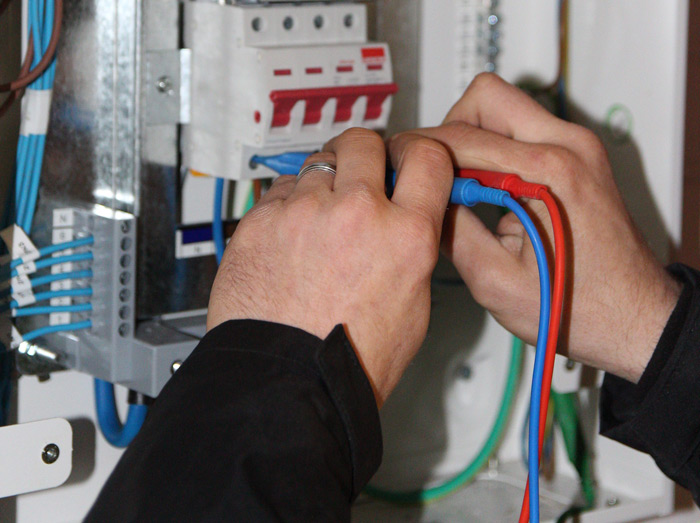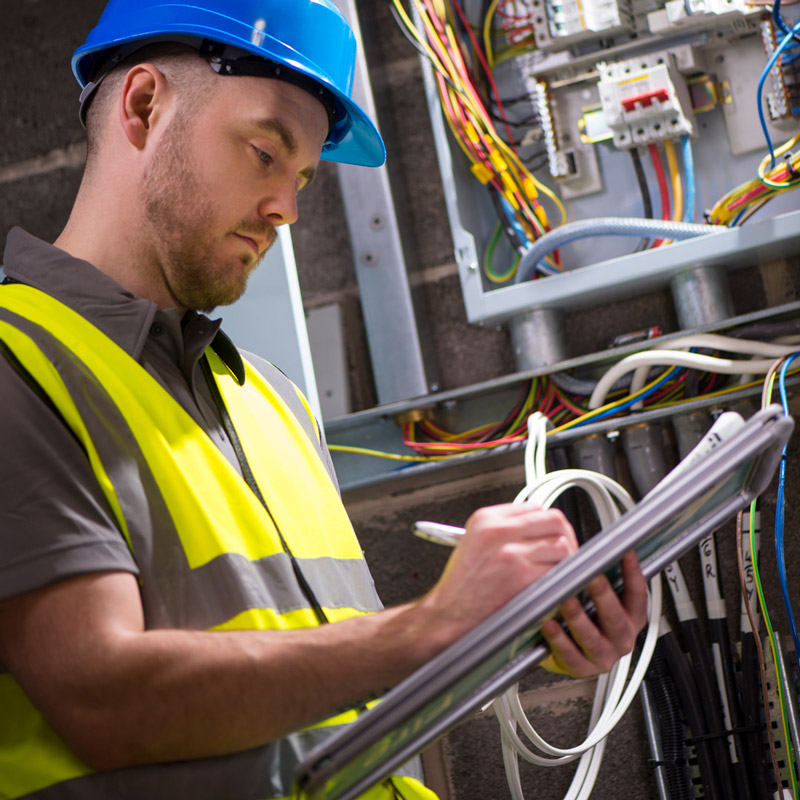PAT
Testing
We make PAT testing easy and simple
Our qualified team of electricians are leading experts in PAT testing UK. Our team ensuring minimum disruption to your business whilst we complete your electrical testing so that your business continues while we visit your commercial building. Our team will complete your PAT testing procedure quickly and provide you with your PAT testing certificate to ensure you are compliant.
We provide a local service across the South East.

Why do you need PAT testing?
PAT testing stands for Portable Appliance Testing.
It’s vitally important to make sure that all electrical devices used within a business or home are inspected for electrical safety.
Both your fixed and portable electrical appliances can be a fire hazard if not tested correctly, the TES Compliance team will ensure your electrical devices are compliant with current UK Law.
A routine inspection of equipment in the rental home or commercial space to check the safety whilst in use will prevent electrical accidents.
PAT testing experts can eliminate any potential issues with faulty electrical devices. The TES compliance team will complete an electrical inspection using specialist PAT testing equipment.
Is PAT Testing a legal requirement in the UK?
PAT testing frequency is key to ensuring the safety of your employees and visitors when using electrical. equipment within your commercial space. Not all electrical defects can be spotted visually, the TES compliance team will find any potential danger by completing a specialist electrical appliance test. By current UK safety laws, your general IT equipment should be PAT tested every 4 years.
However electrical devices used more frequently and likely to be transported regularly will need to be PAT tested every 12 months due to the likely increase of damage such as a personal laptop.
Who can complete PAT Testing?
Qualified electrical engineers are the only professionals able to complete a legitimate PAT test.
With the use of specialist PAT testing equipment, the TES Compliance team will check the equipment for earth continuity, insulation resistance, and lead polarity. Once the electrical device has been tested the electrician will clearly mark with a label that the appliance has ‘failed’ or passed’
Which electrical items should be PAT tested?
All electrical appliances that are connected to a generator or wall socket can pose a risk if damaged. Within a manufacturing environment, this may include electric drills or machinery. For office buildings, the most common items include the office printer, personal computers, coffee machines, fridges, and kettles. Appliance categories apply for each electrical device.
Stationary – larger electrical items such as washing machines, fridges.
IT – Electrical equipment used within a business including photocopiers, computer monitors, personal computers including laptops.
Moveable – Electrical devices are often used in multiple locations around a building, falling under 18kgm such as a projector.
Portable – A device designed to be mobile whilst still connected to an electrical socket.
Chargers & Cables – IEC leads, cable reels and extension cables, PC chargers, and mobile phone charger cables.
Handheld – Often found in hairdressers, such as hair straighteners, hairdryers.







